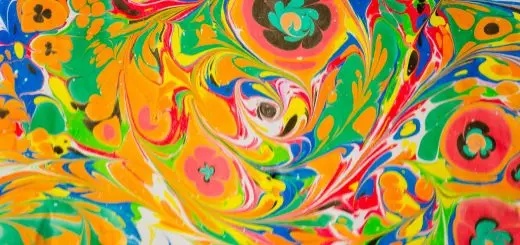The Role of Cows in Different Religions: Sacred Creatures

Looking for more amazing products? Check out our online store and explore our collection here! Happy shopping!
Before diving in, please note: This post is for informational purposes only. If you’d like to know more about how we approach topics, feel free to check out our friendly Disclaimer Page.
Hey there, amazing readers! 
We’re committed to delivering quality posts, and your support (even just sticking around despite the ads) means everything to us. So, bear with us, and thanks for helping us keep the good vibes rolling. Now, on to the fun stuff!
TRANSLATE BUTTON AT THE END OF THE ARTICLE
Introduction: The Sacred Status of Cows in Various Religions
Cows hold a significant place in the cultural and religious beliefs of various societies around the world.
Known for their gentle nature and nurturing qualities, these animals are revered as sacred beings in many faiths.
Throughout history, cows have been symbolized as embodiments of purity, motherhood, and abundance.
Different religions have distinct perspectives on the role of cows, ranging from objects of worship to symbols of divinity.
Understanding the importance of cows in different religions can provide insights into the diverse spiritual beliefs and practices that shape human societies.
Hinduism: Cows as Symbol of Purity and Non-Violence
In Hinduism, the cow is regarded as a sacred animal and holds a central place in religious practices.
Cows are considered symbols of purity, non-violence, and fertility.
They are honored as a representation of the divine and are often associated with various deities, most notably Lord Krishna.
The practice of cow worship, or "go puja," is common in Hindu households and temples, where cows are adorned with garlands and fed as a form of devotion.
The protection of cows is considered a virtuous act in Hindu traditions, with the belief that serving and caring for these gentle creatures brings spiritual merit.
Buddhism: Reverence for Cows and the Concept of Ahimsa
In Buddhism, the principle of non-violence, or "ahimsa," extends to all living beings, including cows.
Cows are revered for their gentle nature and are seen as sentient beings deserving of compassion and respect.
In Buddhist cultures, the welfare of cows is prioritized, and harming these animals is considered a violation of the ethical precepts.
The teachings of Buddha emphasize kindness and empathy towards all creatures, reinforcing the idea that cows, like all living beings, are interconnected and deserving of love and care.
Jainism: Cows as Objects of Worship and Compassion
Jainism, another ancient Indian religion, holds cows in high regard as objects of worship and compassion.
Cows are considered symbols of purity and prosperity in Jain culture.
The practice of "pancha-kalyanaka puja," which involves the worship of five auspicious beings, often includes the cow as a revered entity.
Jains uphold strict principles of non-violence towards all living creatures, including cows, and advocate for their protection and well-being.
The reverence for cows in Jainism reflects the deeply ingrained values of compassion and harmony with nature.
Zoroastrianism: Cows as Beneficial Creations of Ahura Mazda
In Zoroastrianism, an ancient monotheistic faith, cows are seen as beneficial creations of Ahura Mazda, the supreme god.
Cows are revered for their role in sustaining life through their milk and as a symbol of abundance and fertility.
The practice of caring for cows is considered a sacred duty in Zoroastrian traditions, reflecting the belief in the interconnectedness of all living beings.
The reverence for cows in Zoroastrianism underscores the importance of stewardship and respect for the natural world.
Ancient Egyptian Religion: Cows as Symbols of Fertility and Motherhood
In ancient Egyptian religion, cows held symbolic significance as representations of fertility, motherhood, and nourishment.
The goddess Hathor, often depicted as a cow or with cow horns, was associated with love, joy, and motherhood.
Cows were revered for their nurturing qualities and connection to the cycle of life and death.
The worship of cows in ancient Egypt reflected the profound reverence for nature and the divine feminine, highlighting the role of these gentle creatures in sustaining life and fertility.
Christianity: Cows in Biblical Narratives and Symbolism
In Christianity, cows are mentioned in various biblical narratives and symbolize different aspects of faith and spirituality.
The imagery of the "good shepherd" caring for his flock, which includes cows, is a prominent symbol of God’s nurturing and protective love for his followers.
Cows are also associated with abundance and prosperity in biblical contexts, reflecting the biblical teachings on stewardship and provision.
While not as central as in other religions, cows in Christianity serve as reminders of the divine care and sustenance provided to all living beings.
Islam: The Importance of Cows in Islamic Culture and Traditions
In Islam, cows hold a significant place in cultural practices and traditions.
Cows are revered for their role in providing sustenance through their milk and meat, which are consumed as permissible (halal) foods by Muslims.
The practice of sacrificing cows during Eid al-Adha, the Festival of Sacrifice, is a central Islamic tradition that commemorates the willingness of Ibrahim (Abraham) to sacrifice his son as an act of obedience to God.
Cows are seen as symbols of sacrifice, abundance, and generosity in Islamic culture, reflecting the values of faith, charity, and community.
Sikhism: Cows as Symbols of Nourishment and Service
In Sikhism, cows are regarded as symbols of nourishment and service to humanity.
The concept of "langar," or communal kitchen, where free meals are served to all regardless of caste or creed, often includes dairy products such as milk and ghee derived from cows.
Cows are seen as providers of essential sustenance and are revered for their role in supporting the Sikh community.
The practice of seva, or selfless service, extends to caring for cows and ensuring their well-being as a reflection of the Sikh values of compassion and equality.
Native American Religions: Cows as Sacred Beings and Providers
In Native American religions, cows are viewed as sacred beings and providers of sustenance.
The buffalo, often referred to as the "sacred cow of the Plains," was a central figure in many Native American cultures, symbolizing abundance, strength, and interconnectedness with the land.
Cows were honored through ceremonies and rituals that expressed gratitude for the gifts of food, clothing, and shelter provided by these animals.
The reverence for cows in Native American religions underscores the deep spiritual connection to nature and the importance of living in harmony with the natural world.
Judaism: Cows in Jewish Dietary Laws and Cultural Practices
In Judaism, cows play a significant role in dietary laws and cultural practices.
The laws of kashrut, which govern the kosher dietary restrictions, include specific guidelines for the consumption of meat and dairy products derived from cows.
The separation of milk and meat, the ritual slaughter of cows (shechita), and the prohibition of consuming certain parts of the animal are all integral aspects of kosher dietary practices.
Cows are also mentioned in various biblical texts and symbolize themes of sacrifice, abundance, and divine provision in Jewish culture and traditions.
Conclusion: The Universality of Reverence for Cows in Different Faiths
In conclusion, the sacred status of cows in various religions reflects a universal reverence for these gentle creatures across diverse cultural and spiritual traditions.
From Hinduism and Buddhism to Zoroastrianism and Native American religions, cows are revered as symbols of purity, fertility, and abundance.
The role of cows in different faiths highlights the values of compassion, stewardship, and interconnectedness with nature that underpin religious beliefs and practices.
Understanding the significance of cows in various religions can deepen our appreciation for the diverse ways in which humans express spirituality and reverence for the natural world.
Whether as objects of worship, symbols of sustenance, or providers of abundance, cows hold a sacred place in the hearts and minds of believers around the world.

The Enlightenment Journey is a remarkable collection of writings authored by a distinguished group of experts in the fields of spirituality, new age, and esoteric knowledge.
This anthology features a diverse assembly of well-experienced authors who bring their profound insights and credible perspectives to the forefront.
Each contributor possesses a wealth of knowledge and wisdom, making them authorities in their respective domains.
Together, they offer readers a transformative journey into the realms of spiritual growth, self-discovery, and esoteric enlightenment.
The Enlightenment Journey is a testament to the collective expertise of these luminaries, providing readers with a rich tapestry of ideas and information to illuminate their spiritual path.
Our Diverse Expertise
While our primary focus is on spirituality and esotericism, we are equally passionate about exploring a wide range of other topics and niches 

To ensure we provide the most accurate and valuable insights, we collaborate with trusted experts in their respective domains 
Our blog originally focused on spirituality and metaphysics, but we’ve since expanded to cover a wide range of niches. Don’t worry—we continue to publish a lot of articles on spirituality! Frequently visit our blog to explore our diverse content and stay tuned for more insightful reads.
Hey there, amazing reader! 
Check out our store here and take a peek at some of our featured products below! Thanks for being awesome!











